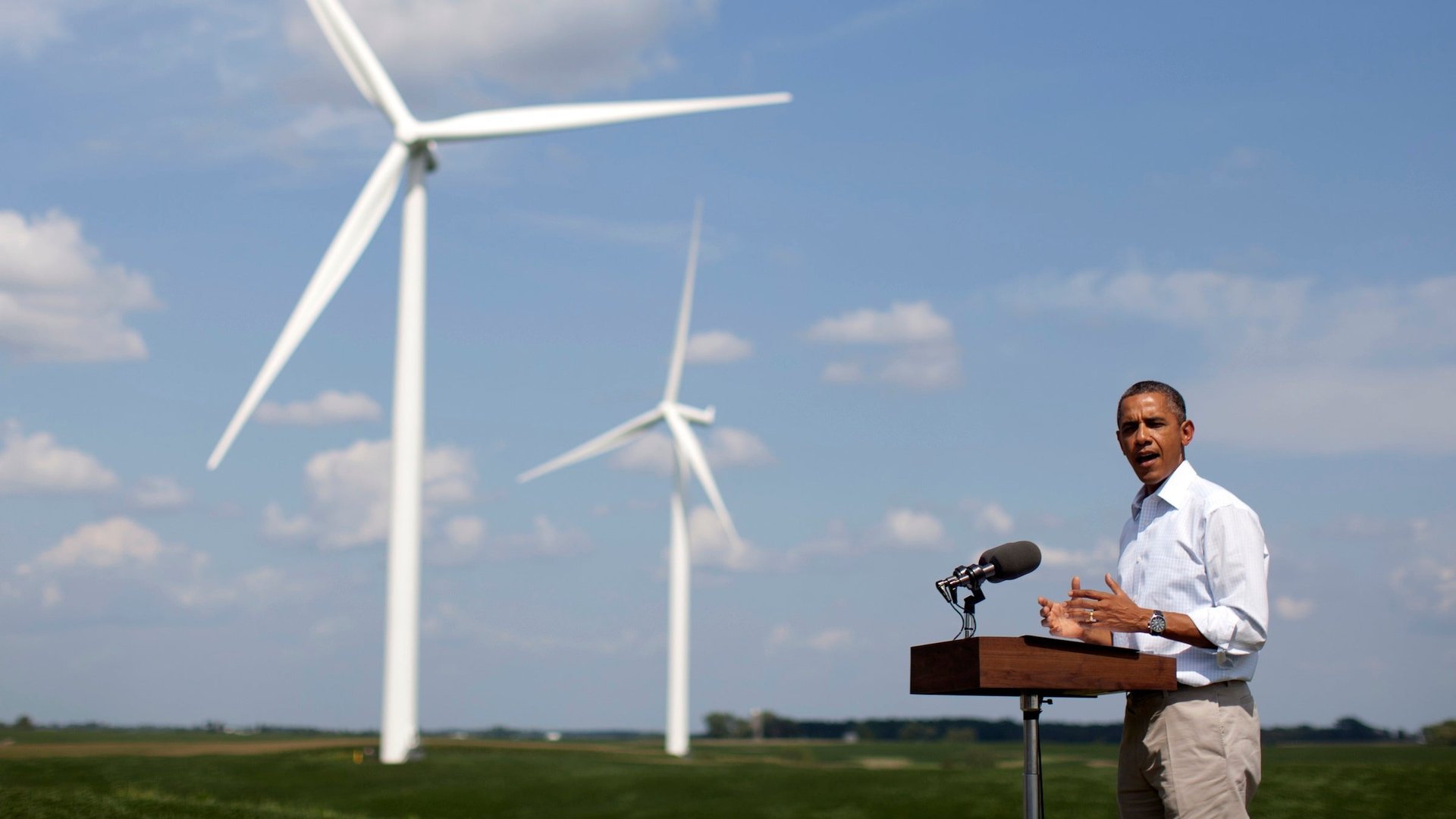Why the US-Chinese row over wind farms is (mostly) a lot of hot air
Chinese interest in American assets has been a touchy subject for a while, but today a new milestone was passed: for the first time in 22 years, an American president has invoked national security privileges to block a foreign commercial deal.


Chinese interest in American assets has been a touchy subject for a while, but today a new milestone was passed: for the first time in 22 years, an American president has invoked national security privileges to block a foreign commercial deal.
Still, it would be “unwise to read too much into this one case”, says Nathaniel Ahrens of the Center for Strategic and International Studies in Washington. The proposed purchase by Ralls Corporation, a Chinese wind-farm developer, of four sites in the state of Oregon for building wind turbines, raised rather obvious red flags over national security. The sites are near the Naval Weapons Systems Training Facility in Oregon; one of the sites is within restricted military airspace, while the others are not far away from it. The Committee for Foreign Investment in the United States (CFIUS), a panel of government officials that scrutinizes foreign deals, had told Ralls to suspend its projects, in response to which Ralls filed a lawsuit earlier this month. Barack Obama has now ordered Ralls to give up on the development and sell the sites.
It didn’t help, Ahrens points out, that in addition to choosing a very sensitive location for its wind farms, Ralls had failed to notify CFIUS when it bought the land. But in general, he says, “it certainly shouldn’t be seen as a change in the US attitude towards welcoming Chinese direct investment.” A report from the Rhodium Group, a research firm in New York, points out that in the last couple of years,
Chinese foreign direct investment (FDI) in the United States has increased rapidly, growing from an annual average of around 30 deals worth less than $500 million before 2009 to almost 100 deals worth about $5 billion in 2010 and 2011.
It is true that in 2005, CNOOC, a big Chinese state oil firm, withdrew an $18.5 billion bid to buy Unocal after stiff domestic US opposition. But in 2010 the firm paid $1.1 billion to Chesapeake Energy for shale oil acreage in Texas, and the following year paid $1.3 billion, again to Chesapeake, for shale reserves in Colorado. Also in 2011, China’s Sinopec bought $2.5 billion in shale acreage from Devon Energy. Currently, CNOOC is seeking to buy Canada’s Nexen for $15 billion, and as Nexen has assets in the Gulf of Mexico, CFIUS is looking at that deal too.
Josh Zive, a lobbyist with Bracewell Patterson, a Washington law firm, concurs that Obama’s decision on Ralls “is not surprising given the facts leading up to it.” But, he warns, there are implications “that are difficult to predict.” Chinese investors are “increasingly sensitive” to what they perceive as a hostile American atmosphere toward Chinese investment, particularly in oil, and this decision could confirm their suspicions.